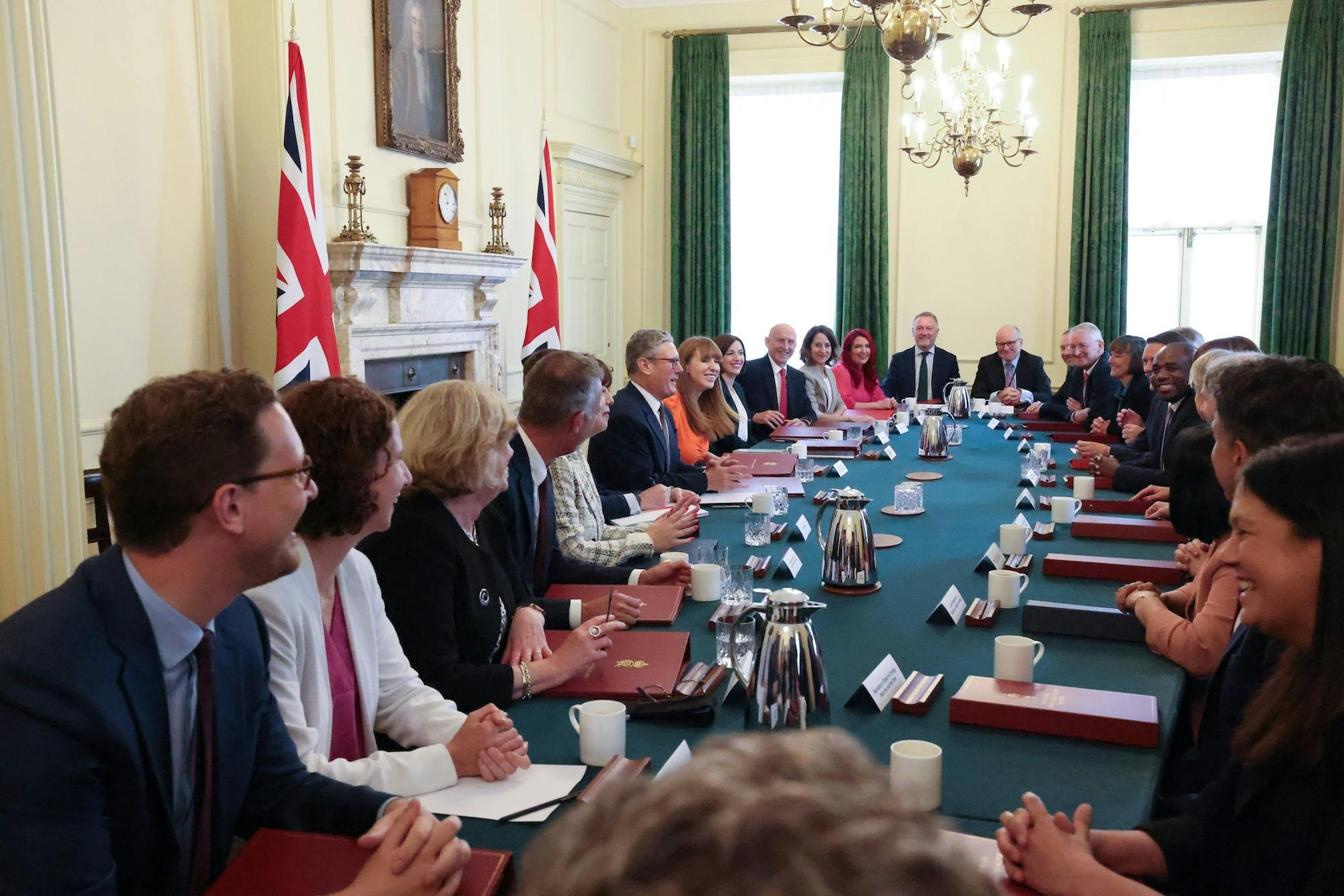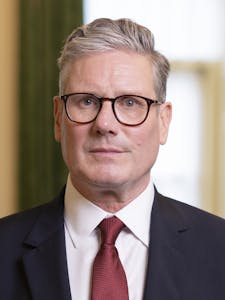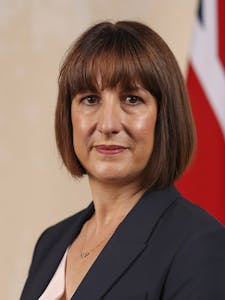Keir Starmer moved into Downing Street on Friday, and wasted no time in installing his Cabinet to lead and deliver the new government’s agenda. Angela Rayner has been given the housing brief (stepping into Michael Gove’s shoes as Secretary of State for Housing & Communities) as well as the Deputy Prime Minister role, with seasoned player Matthew Pennycook as Housing Minister. Rachel Reeves is in charge of the national finances as Chancellor of the Exchequer, taking the reins from Jeremy Hunt.

We’re expecting a quick start to Labour’s policy programme, including an “immediate” tweak to the National Planning Policy Framework (a draft could be published this Summer) and the return of the Renters Reform Bill. A big Budget event will probably come by November, probably heralding changes to property taxation (including an increase to the SDLT surcharge for overseas buyers and raising the Stamp Duty threshold for first-time buyers). The party has also promised a harder, faster end to non-dom status, and continued reforms to the planning and leasehold regimes.
Here we take a look at who is now in charge of Britain’s property market…

Further Reading
- Election 2024: Starmer’s Labour wins the keys to Downing Street
- Election 2024: Property industry reactions to the election of a Labour government
- Analysis: Tom Bill on what a Labour victory means for the UK property market
- Labour Party Manifesto 2024: Key housing policies & pledges
Keir Starmer, Prime Minister

- Brief: National government
- Replaced: Rishi Sunak
- Age: 61 (born 2 September 1962)
- Constituency: Holborn & St Pancras, London
- Pre-political career: Legal
- Twitter: x.com/Keir_Starmer
Sir Keir Starmer KCB KC MP has been a North London MP since 2015, leader of the Labour Party since 2020, and Prime Minister since last week.
He was formerly a human rights lawyer and Director of Public Prosecutions, handling high-profile legal battles including probes into phone-hacking by national newspapers. The tool-maker’s son is widely credited with being the inspiration for buttoned-up barrister character, Mark Darcy, in Helen Fielding’s “Bridget Jones” series.
As Labour leader, he turned the party away from his predecessor Jeremy Corbyn’s true-socialist agenda, staking a claim to the political middle ground as the Tories lurched to the right after Brexit.
His election manifesto was largely centrist, promising many things to many people. The richest will pay more tax, but there are plenty of pro-business commitments as well.
Rachel Reeves, Chancellor

- Brief: The economy & taxation
- Replaced: Jeremy Hunt
- Age: 45 (born 13 February 1979)
- Constituency: Leeds West & Pudsey
- Pre-political career: Economist / banker
- Inbox: Inflation; tax; employment; debt, etc
- Twitter: x.com/RachelReevesMP
Heavyweight minds at the Bank of England like the idea of Rachel Reeves at the helm of the UK economy. Ex-Governor Mark Carney even took the unprecedented step of endorsing her for the role back in 2023, well before the General Election was called.
Britain’s first female Chancellor of the Exchequer is an Oxford-educated former BoE economist and teenage chess champion, who once turned down a job at Goldman Sachs.
An MP since 2010, she handled various economy-related gigs while on the opposition benches, including Shadow Chief Secretary to the Treasury, Shadow Secretary of State for Work & Pensions, Shadow Chancellor of the Duchy of Lancaster (opposite Michael Gove) and, most recently, Shadow Chancellor of the Exchequer (2021-2024). She was mentored by former Chancellor Alistair Darling (and spoke at his funeral).
Her big-ticket ideas include creating a UK National Wealth Fund, reducing the national debt (a Conservative mantra), extinguishing non-dom tax exemptions, and generally toe-ing a line between pro-business policies and more socialist ideals.
Angela Rayner, Housing Secretary

- Brief: Housing & communities
- Replaced: Michael Gove
- Age: 44 (born 28 March 1980)
- Constituency: Ashton under Lyne, Greater Manchester
- Pre-political career: Care worker / trade union rep
- Inbox: Planning reform; Leasehold reform; Rental sector reform; Housebuilding targets; Social housing; new towns
- Twitter: x.com/AngelaRayner
The new Labour regime seems to be keeping the old Tory “Levelling Up” mantra. Angela Rayner has moved from Shadow to IRL Secretary for Levelling Up, Housing & Communities – a role fashioned for and last held by Michael Gove.
UPDATE, 9th July 2024: Rayner has renamed her department, dropping “Levelling Up” and returning it to its old “Ministry of Housing, Communities & Local Government” (MHCLG) identity. “No more gimmicks and slogans,” she explained.
One of the prickliest policies on Rayner’s desk is planning reform. Successive Conservative ministers tried and failed to do anything meaningful, despite repeated attempts and ambitious proclamations. The end-game is to get more homes built (300,000 a year), with bonus points for promoting sustainability, creating a better spread of affordable and social homes, not ruining existing landscapes and neighbourhoods, and keeping local communities (AKA voters) on-side. It is a big ask, but Rayner has already promised an “immediate” update to the National Policy Planning Framework “to undo damaging Conservative changes, including restoring mandatory housing targets.”
Reforms of the leasehold regime and private rented sector also stay on the table through the handover from Conservative Gove to Labour Rayner.
The Leasehold Reform Bill was rushed through in Rishi Sunak’s “wash-up” period just before the General Election. It’s a start, but falls well short of Labour’s manifesto commitments, which include ending the “feudal” system altogether, banning new leasehold flats and ensuring commonhold is the default tenure.
A Rental Reform Bill was shelved by the outgoing Sunak government, but is certain to be resurrected with vim by Rayner’s department. Expect Section 21 ‘no fault’ evictions to be abolished, and more rights for tenants.
Matthew Pennycook, Housing Minister

- Brief: Housing & planning
- Replaced: Lee Rowley (the 16th Conservative Housing Ministers in 13 years)
- Age: 41 (born 29 October 1982)
- Constituency: Greenwich & Woolwich, Greater London
- Pre-political career: Charity sector / local councillor
- Inbox: Planning reform; Leasehold reform; Rental sector reform; Housebuilding targets; Social housing.
- Twitter: x.com/mtpennycook
Matthew Pennycook is the 17th MP to be named Housing Minister in the last 14 years. He has strong form with the brief, and there’s hope that his appointment marks the end of the Ministry’s revolving door policy.
He had been Shadow Minister for Housing & Planning since 2021, working alongside Rayner, and was heavily involved in the Renters Reform Bill; Pennycook’s name was on multiple amendments to the legislation before it was shelved when Rishi Sunak called the election.
He was also Parliamentary Private Secretary to Shadow Housing Minister, John Healey, back in 2015-16.
The Oxford-educated politician won a strong majority in his SE London constituency last week. Commenting on his recent appointment, he Tweeted: “It is a real honour to have been appointed Minister of State at the Department of Levelling Up, Housing and Communities (DLUHC). Tackling the housing crisis and boosting economic growth is integral to national renewal. Time to get to work.”
Nick Boles, Planning Tzar (potentially)

It’s been reported that former Conservative Planning Minister Nick Boles has been asked by the Starmer team to lead a review of the National Planning Policy Framework (NPPF).
Amongst other things, the review could see a re-working of the Green Belt (creating a new “Grey Belt” classification to promote development and urban extension projects), and the restoration of formal house-building targets for local councils.
Boles served under Prime Minister David Cameron, but resigned from the Conservative Association in 2019. He came out in support of Labour in 2022 (just after the Truss/Kwarteng mini-budget), and went on to advise the shadow cabinet on planning reform matters.
Before becoming an MP (for Grantham & Stamford in Lincolnshire, from 2010 to 2019), Boles was a Westminster City councillor and a Director of the Policy Exchange think tank.


